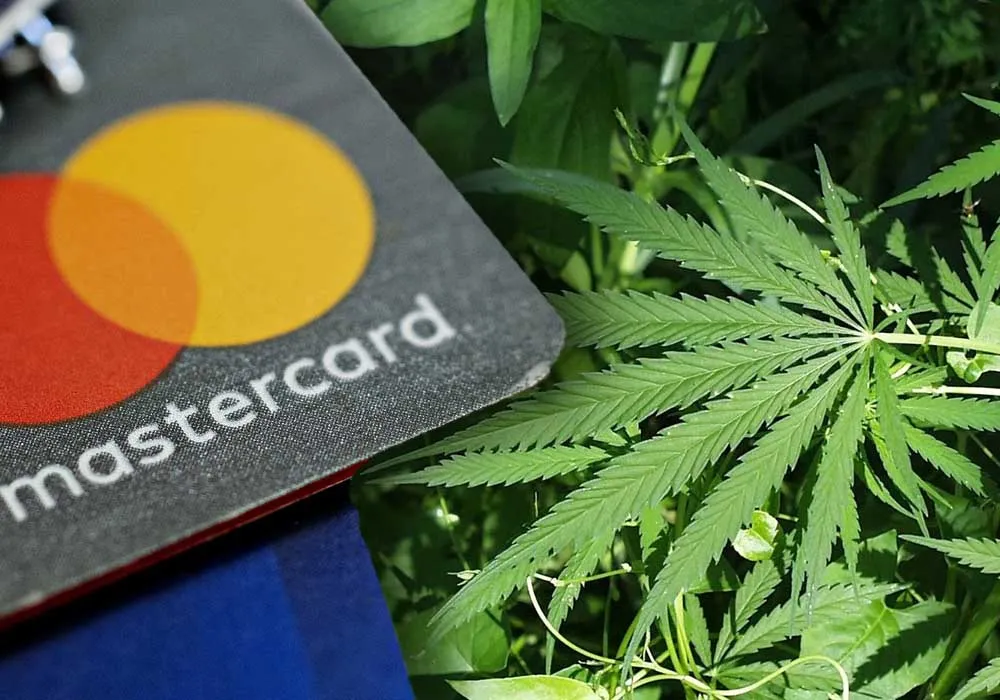A Mastercard Inc. instructed payment processors and banks to stop allowing transactions involving cannabis with their debit cards. This decision is seen as a step towards greater transparency in the banking system, while posing challenges to the market. Card networks' general reluctance to engage in cannabis transactions stems from its federal illegality, despite being legalized in several states.
Upon learning of the use of PIN-enabled debit cards for cannabis-related purchases on its network, Mastercard acted quickly, launching an investigation into the matter. In line with its policies, the company has instructed financial institutions that provide payment services to cannabis merchants to immediately terminate these activities.
Following the receipt of cease and desist letters from Mastercard, companies that previously facilitated PIN debit payments for cannabis are now trying to find alternative solutions for the dispensaries that rely on them. This development is causing considerable disruption as the industry looks for ways to adapt to the changing situation.
As Mastercard takes a stand, it remains unclear whether other digital payment options exist for cannabis buyers. A Visa Inc., another major card chain, has also made efforts to restrict cannabis purchases on its platform. Card networks' general reluctance to engage in cannabis transactions essentially has to do with the fact that cannabis is illegal at the federal level, despite being legal in several states.
Challenges for dispensaries and consumers
With the crackdown in place, cannabis users will face less convenient options for buying cannabis in cash. While this could be a win-win for banks and credit card companies, it poses challenges for consumers who prefer digital transactions. The convenience of card payments often comes with hefty surcharges, which were a significant source of revenue for the payment processing industry.
This wave of closures is the latest challenge for digital payment solutions for cannabis consumers. Previously, cashless ATMs had served as a prominent option, resulting in a $7 billion gap in the banking system.
However, this segment faced its own problems when two individuals who ran a company linked to cashless ATMs were accused of insider trading. Now, the spotlight is on PIN debit solutions, which have emerged as a viable alternative to buying cannabis.
For dispensaries, navigating the legality of payment solutions remains a challenge. Many struggle with whether the services they purchase from lesser-known processing companies are legitimate. This lack of clarity further complicates compliance in an industry where cannabis is legal in many states but still federally illegal.
Recent actions by Mastercard and the looming uncertainty surrounding PIN debit solutions have led to an increase in queries for payment alternatives. Cannabis companies and industry experts are looking for viable options to keep financial transactions running smoothly in the face of growing obstacles.
Increased difficulties for companies
The implications of these restriction measures go beyond payment methods. With no progress on legalization at the national level, the cannabis industry faces uncertainty, which leads to falling share prices and lack of access to essential banking services. Efforts to pass legislation to give cannabis companies better access to bank funds have so far failed.
For businesses hit by the crackdown on cashless ATMs, PIN debit solutions offered a lifeline. However, with the current wave of closures affecting these alternatives, many companies find themselves with even fewer options.
Some may turn to ACH (Automated Clearinghouse) payment solutions, which are considered to have less compliance risk. However, these methods can be cumbersome for customers as they require account and bank registration numbers.
While cash remains a staple of the cannabis industry, it exposes dispensaries to potential theft risks. Card-based solutions once offered convenience to customers, but with surcharges and limited options, the industry is now forced to strike a balance between customer friendliness and compliance.
The recent actions taken by Mastercard have dealt a significant blow to the cannabis industry's payments landscape. With the crackdown on PIN debit solutions, businesses must adapt to find viable alternatives while navigating the complexities of legal compliance and customer convenience.
As the cannabis market continues to evolve, stakeholders will need to find innovative solutions to keep the industry thriving amid regulatory challenges.










































